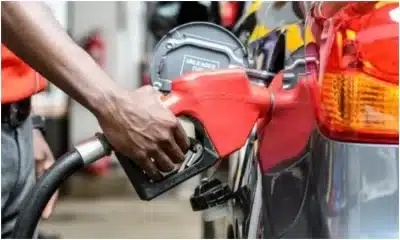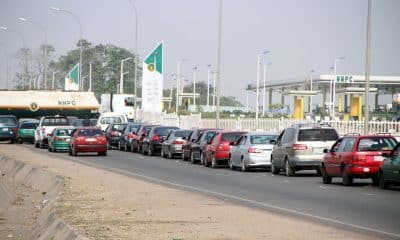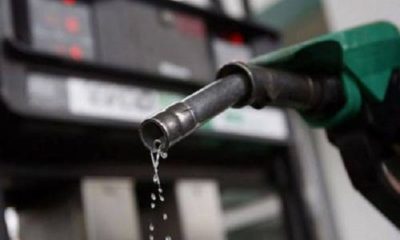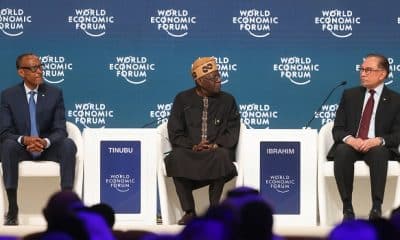Business
‘Fuel Price Should Be ₦1,200 Per Litre, FG Still Subsidizing’ – Oil Marketers Disagree With NNPCL Over Subsidy
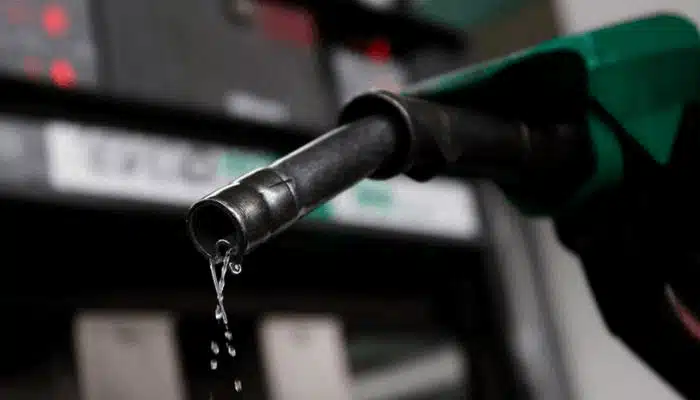
There is a fresh disagreement between the Nigerian National Petroleum Company Limited (NNPCL) and fuel marketers over the recent fuel subsidy removal.
The disagreement comes as the country’s currency continue to weaken against the dollar at both the official Investors & Exporters Window and the parallel market.
Naija News recalls that the local currency traded at ₦1,225/dollar on the black market on Tuesday, but it closed at N998/dollar on the official market.
Economists and oil marketers claimed that the PMS subsidy was rising recently due to the falling naira rate. However, the NNPC swiftly refuted these claims, stating that it was recouping its entire cost from the importation of Premium Motor Spirit, also known as fuel.
During a broadcast on Channels TV on Sunday, Bismarck Rewane, the Chief Executive Officer of Financial Derivatives Company, clarified that the fuel subsidy was not eliminated but rather decreased.
In a similar vein, oil marketers told Punch Newspaper on Tuesday that PMS should sell for ₦1,200/litre in a free market and that gasoline subsidies were rising in light of the naira’s decline against the US dollar and the price of crude oil.
The price of petrol, which the NNPCL is the only company authorized to import into Nigeria, ranges between N617 to N660 a litre, depending on where it is bought.
Speaking on the subject, Muda Yusuf, the CEO of the Center for the Promotion of Private Enterprise, acknowledged that there was a partial government subsidy on fuel but pointed out that this was due to political, social, and economic factors.
However, the Chief Corporate Communications Officer of NNPCL, Olufemi Soneye, stated that the Federal Government had discontinued providing fuel subsidies and characterized the opinions of economists and marketers as assumptions.
In his inaugural speech on May 29, 2023, President Bola Tinubu proclaimed that the fuel subsidy was no longer available. The NNPCL effectively put this announcement into action the following day.
Prior to Tinubu’s announcement, the price of fuel at the pump was less than N190 per liter; but, following the President’s speech, it increased to more than N500 per liter and then to more than N600 per liter a few weeks later.
When asked if the NNPCL, as Nigeria’s only importer of fuel, was subsidizing the commodity as suggested by experts and dealers, the CCCO of the oil company said, “We prioritise our time on substantive matters rather than responding to assumptions.
“At NNPC Ltd, we prioritise national development through energy security and sustainable growth. We reiterate that the Nigerian government does not pay subsidy on fuel; we recover full costs from our imported products.’
“As a global energy company, our focus remains on fostering a vibrant and energy-secure Nigeria.”
However, the National Public Relations Officer of the Independent Petroleum Marketers Association of Nigeria, Ukadike Chinedu, argued that the cost of fuel in a free market should be approximately ₦1,200 per litre, disclosing that the government currently spending more to subsidize fuel.
He said, “To be pragmatic in this analysis let’s consider the cost of petrol today in the United States. For premium petrol, it is $2.99, while super petrol sells for $3.15 or $3.10 depending on the part of that country where you are making the purchase.
“Now, $3 in Nigeria is over ₦3,000, because a dollar in the parallel market is over ₦1,000. You can also see the cost of diesel, that is over ₦1,000/litre, and it is important to state that petrol is usually higher in price than diesel in a free market.
“So if you consider the cost of diesel, dollar and other international factors, the price of petrol in Nigeria should be around ₦1,200/litre, but the government is subsidising it, which to an extent is understandable.”
Ukadike pointed out that he had previously clarified that the federal government was imposing a quasi-subsidy, which translates to mean that “the Federal Government decides to take out about 50 percent of the subsidy instead of taking out 100 percent of it.”
However, the IPMAN representative was upbeat once more, predicting that the price of refined petroleum products would drop as soon as the refineries in Port Harcourt and Dangote began to produce the goods.
“I also believe that there will be a reduction in the prices of petroleum products this year when you consider what the government is currently doing. The coming onboard of the Port Harcourt refinery and the supply of crude to Dangote refinery are good developments in the sector. Their operations will help stabilise the price of PMS and other petroleum products in Nigeria, because it will definitely cut down the importation of products,” Ukadike stated.

